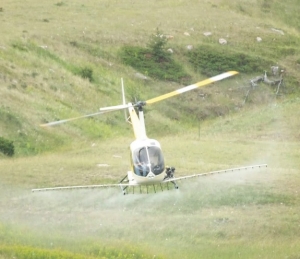Waikato Regional Council says it has had 19 complaints about agrichemical spray drift in recent months.
Under the Waikato regional plan, people doing ‘widespread’ spraying activities are required to have a spray control plan, including measures to avoid drift, and to notify neighbours before spraying. ‘Widespread’ refers to anything more than low pressure hand-held spray equipment used for spot spraying.
The council’s incident response manager, Derek Hartley, says one notable problem is sprayers not notifying their neighbours as required under the rules.
“This means people don’t know what is being sprayed and can’t take steps to avoid contact with the spray, like disconnecting rainwater systems, avoiding hanging out washing or going out on the day spraying occurs.
“Complying with rules when spraying is not onerous. If sprayers contacted their neighbours a day or two before spraying, maintained an adequate spray plan as set out in the regional plan rules, and used common sense about choosing the right weather conditions when spraying, a substantial number of the issues we hear of would just not occur,” says Hartley.
People failing to follow the rules could get an infringement notice or face prosecution and a maximum penalty of two years imprisonment and/or a fine of up to $300,000 for an individual or $600,000 for a company.
Examples of spray drift complaints include people saying it has damaged a recently planted wetland area, damaged part of a vineyard, made a person and their dog sick or contaminated tank water supplies.
“While we can’t always substantiate what people have told us, these are concerning issues,” Hartley says. “We’d ask people to stick to the rules to avoid affecting other
people’s health and lifestyle, and to avoid harming waterways, and non-target plants and animals.”
www.waikatoregion.govt.nz
















